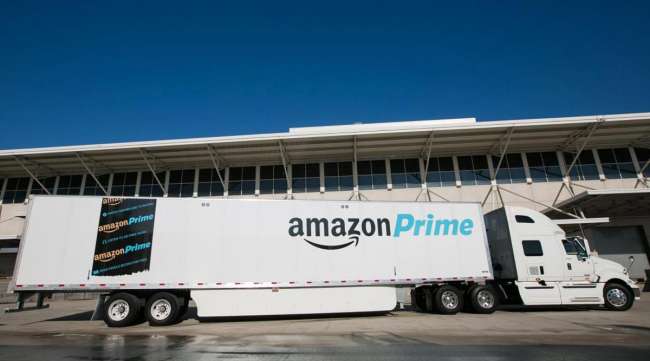$13.7 Billion Amazon Deal for Whole Foods Expected to Benefit Trucking

Amazon.com Inc. said that it will buy Whole Foods Market Inc. for $13.7 billion, and the deal is expected to benefit trucking.
The online powerhouse announced its plans on June 16, offering to pay $42 per share for the natural foods grocer.
The deal follows Whole Foods’ announcement a month ago of a board shake-up and cost-cutting plan amid falling sales. The grocery store operator was also under pressure from activist investor Jana Partners.
While the purchase could prove disruptive for other industries, trucking should be OK and may even stand to profit, according to industry observer Russell Leo, CEO of RLS Logistics.
“The overall impact is positive for the transportation industry — from the grocery side it’s a different answer, and even with that I don’t know how negative it would be,” Leo said. “For trucking and logistics, I see it as neutral if not a positive impact because Amazon is still showing brick and mortar is still key.”
Amazon said in its announcement that it will continue to operate stores under the Whole Foods Market brand.
Analyst Ben Hartford of Robert W. Baird & Co. cautioned, though, that with Amazon’s clear record of disrupting business models, it’s impossible to predict exactly how the deal with Whole Foods will play out.
RELATED: Amazon is buying more than Whole Foods; it’s getting warehouses and showrooms
“They have said plenty of times on the parcel side that they’re working to supplement — not supplant — their existing parcel providers, such as UPS and FedEx, but those statements time and again have not reduced the concern that investors have had as it relates to Amazon’s broader logistics ambitions.”
What’s happening with Amazon is part of a phenomenal trend in both industry at large as well as transportation, analysts said.
“From our perspective it’s not just Amazon, it’s this acceleration in e-commerce sales. Last year, those sales accounted for 12% of U.S. retail sales for ex-auto sales and ex-fuel sales,” said Amit Mehrotra, lead analyst for U.S. transportation and shipping at Deutsche Bank in New York City.
Estimates by the bank are for e-commerce sales’ penetration into retail to increase by 50% over the next three years, representing 18% of total retail sales. “That 50% penetration transfer to 75% increase in sales dollars will mean going from $390 billion in 2016 to $690 billion,” Deutsche Bank reports.
While Mehrotra didn’t think the deal was much about Amazon’s yearning to be in the grocery business, Leo said he sees it another way.
“I think the buy gives Amazon an instant network of temperature-controlled distribution, which has always been their Achilles’ heel. Frozen and refrigerated [goods] are a whole other animal, and with the 460 stores located nationwide they got instant credibility [in this space].”
Amazon is retaining Whole Foods CEO John Mackey as well as the grocery chain’s headquarters in Austin, Texas. The parties expect to close the transaction during the second half of 2017, the announcement said.

